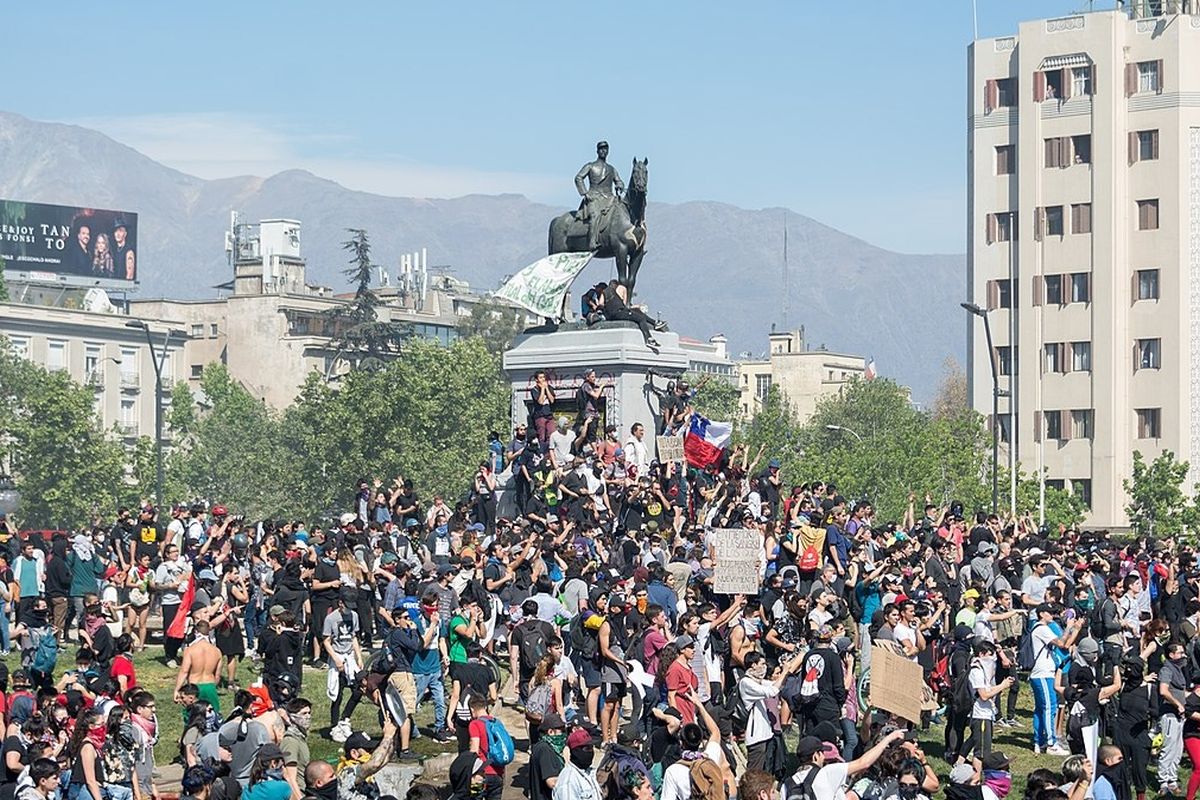MoS Margherita meets Ambassadors of Chile, Myanmar
Minister of State for External Affairs, Pabitra Margherita held a meeting with the Ambassador of Chile, Juan Angulo and He also held a meeting with the Ambassador of Myanmar to India, Zaw Oo.
Meanwhile, after receiving Pinera’s request, Bachelet announced that she will send the rapporteurs to Chile to investigate potential violations of basic liberties during the recent protests

Chile Protest. (Photo: IANS)
Amid ongoing protests in Chile, Foreign Minister Teodoro Ribera said on Thursday that the Chilean government would ask the UN to send human rights observers to monitor the nationwide protests that broke out last week, and left 18 people dead.
President Sebastian Pinera was planning to contact UN High Commissioner for Human Rights Michelle Bachelet – who also happens to be his predecessor as Chile’s leader – to ask her to deploy a team of rapporteurs, according to the foreign ministry.
Advertisement
Meanwhile, after receiving Pinera’s request, Bachelet announced that she will send the rapporteurs to Chile to investigate potential violations of basic liberties during the recent protests, the Efe news reported.
Advertisement
Taking to Twitter, Bachelet, former Chilean president tweeted that, “Having monitored the crisis from the beginning I have decided to send a verification mission to examine reports of human rights violations in Chile”.
Having monitored the crisis in #Chile since it began, I have decided to send a verification mission to examine the allegations of #HumanRights violations. Parliamentarians and the Government have both expressed a desire for a @UNHumanRights mission.
— Michelle Bachelet (@mbachelet) October 24, 2019
Earlier this week, Bachelet said that she was “deeply disturbed and saddened to see violence, destruction, deaths and injuries in Chile”.
The Chief Justice of Chile’s Supreme Court, Haroldo Brito, said that at least 425 of the nearly 5,400 people detained in the protests were arrested unlawfully.
On Wednesday, the National Human Rights Institute (INDH), an autonomous, publicly funded entity, in its latest tally said that a total of 2,410 people were under arrest nationwide.
Earlier on Tuesday, thousands of protesters took to the street to protests against the government.
Riot police used tear gas and streams of water to break up marches by rock-throwing demonstrators in several streets of Santiago while military and police guarded other Chileans who formed long lines at supermarkets.
Many stores, subway stations and banks were burned, damaged or looted over the weekend, and some people have reported problems getting cash at ATMs.
Last week, a total of 41 subway stations were damaged and at least 308 people were arrested during protests against an increase in metro faces in Santiago.
The violent protests prompted the government to declare a state of emergency and the deployment of soldiers in the provinces of Santiago and Chacabuco, as well as in the Metropolitan municipalities of Puente Alto and San Bernardo.
Clashes broke out between the protesters and the police in several parts of the city throughout the day and the subway was shut after attacks on several stations.
The government’s hike in Santiago Metro fares unleashed a wave of protests that over the past two weeks have awakened the ire of the public at the high costs for public services, the inadequate pension system and deficiencies in the public health system, all of this combining into a social outburst that has been unprecedented in Chile’s recent history.
Advertisement